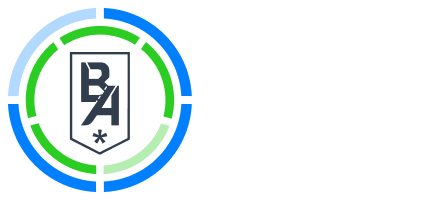’I Didn’t Know What He Knew, But I Had to Find Out’
Whose example are you emulating? The former veteran NFL lineman and former NFLPA president shares his best advice on what it takes to be a pro.
By Eric Winston
I was lucky enough that I was not too stupid. I realized it would be smart to take some advice from the older veterans, because there was a point early on when I realized I didn’t know what I didn’t know. I had some arrogance, but not too much.
A guy named Mark Bruener was kind enough to show me what it meant to be a professional. He’d played a long time, and the end of his career overlapped with the beginning of mine in Houston. It started with him saying, “Hey, listen, I work out every day at 6:30 a.m. If you want to work out with me, just don’t be late.” I remember thinking, Man, that’s really early.
Track Your Progress: Elite athletes deserve elite data. Get the BreakAway app >>>
But I saw all the work he was putting in; he’d be in the league for 12 years at that point and was still going strong. And I saw all these other guys in the locker room not really putting in the same amount of work. I didn’t know what this guy knew, but I figured there had to be something there.
I’d had the benefit of playing on some really good teams in Miami. I don't think this is the same for everybody, but when I got to the NFL, I wasn't completely blown away with how physically impressive everybody was. I’d been in that kind of world for a while. Don't get me wrong, it was a step up, but it wasn't like holy shit. I thought there was a much bigger step-up from high school to college than from college to the pros.
Being a pro is all about consistency. You have to have talent to play at the highest level—but that threshold really isn’t as high as people think. Once you pass that threshold, then it becomes about doing the right things every single day.
But I was blown away by how smart everybody was in the pros. If you’re even slightly tipping your stance, they’re going to know. If there’s motion on the play, someone might know what’s coming and get the jump on you. The level of understanding the game was just so much different. I realized there were a lot of things I didn’t know.
I was 22, and there were fits and starts and meandering and not always doing the right thing at the right time at the start of my career. And Mark offering me to join him for morning workouts was sort of a little fork in the road. I could have just said, “That's a little too early, I'm not going to make it.” But I joined him. I didn’t know what he knew, but I had to find out.
And that was the start of me realizing that being a pro is all about consistency and doing the right things every single day.
Can you make yourself go to bed at 10 o'clock at night so you can get yourself up at 6 in the morning? Can you put in a full day of work every single day?
You have to have talent to play at the highest level—but that threshold really isn’t as high as people think. Once you pass that threshold, then it becomes about how much of a professional you are. And that means:
What are you willing to do?
And can you do it repeatedly?
Get the BreakAway App: Know Everything About Yourself That Teams Do >>>
I got lucky early on in my career coming to the realization that I needed to be a straight line across, consistent, not going up and down. I needed to be a straight line with an upward trajectory. And when you achieve that, that means the coaches will trust you. You’re not waffling, there’s no volatility, you’re going to be ready to go every day.
It all comes back to this: Can the coaches and your teammates trust you to be doing the same thing every day to win. That starts with being on time for those 6:30 a.m. workouts.
Every. Single. Day.
Question? Comment? Want to chat? Email us at athletes@breakawaydata.com
